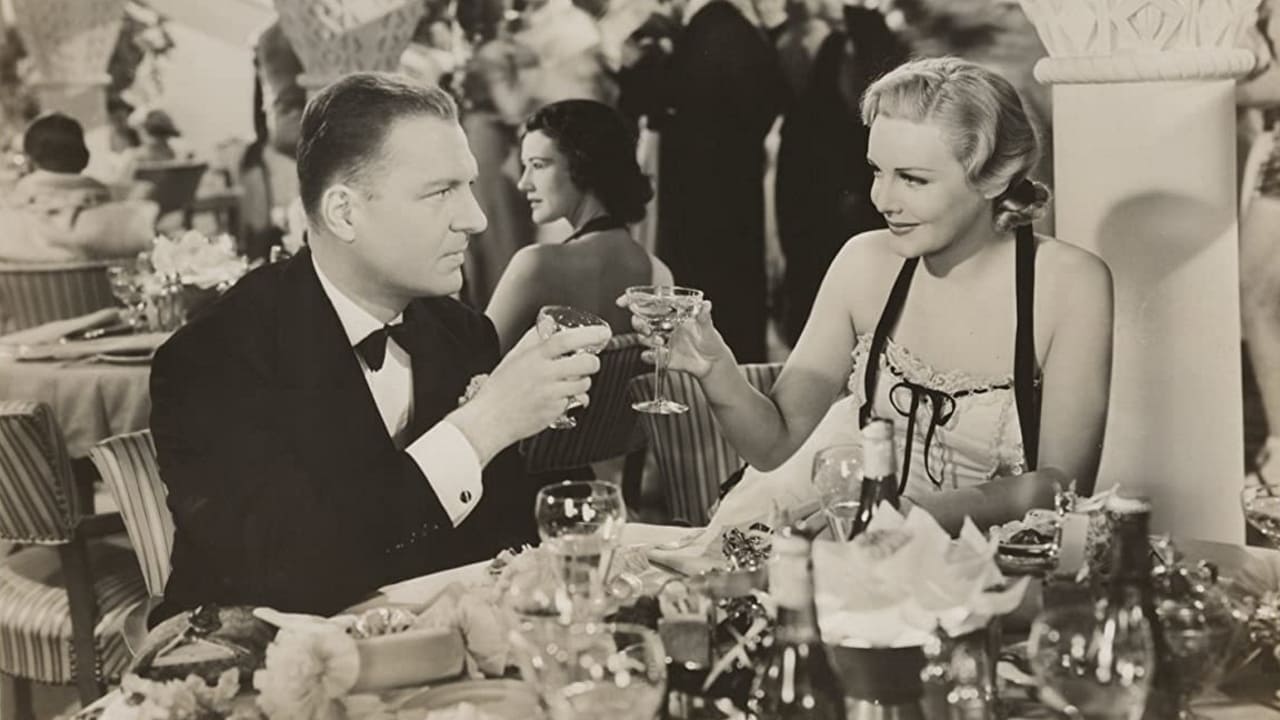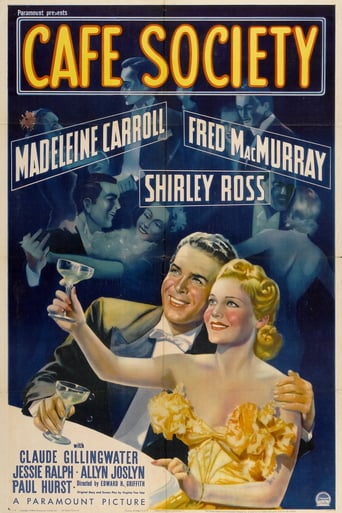Libramedi
Intense, gripping, stylish and poignant
Fairaher
The film makes a home in your brain and the only cure is to see it again.
Sanjeev Waters
A movie that not only functions as a solid scarefest but a razor-sharp satire.
Zandra
The movie turns out to be a little better than the average. Starting from a romantic formula often seen in the cinema, it ends in the most predictable (and somewhat bland) way.
JohnHowardReid
Director: EDWARD H. GRIFFITH. Screenplay: Virginia Van Upp. Original story: Virginia Van Upp. Photography: Ted Tetzlaff. Film editor: Paul Weatherwax. Art directors: Hans Drier and Ernst Fegté. Set decorator: A.E. Freudeman. Costumes: Edith Head. Process photography: Farciot Edouart. Song by Burton Lane and Frank Loesser. Music director: Boris Morros. Sound recording: Harold Lewis and John Cope. Western Electric Sound System. Producer: Jeff Lazarus.Copyright 3 March 1939 by Paramount Pictures, Inc. New York opening at the Paramount: 22 February 1939. Australian release: 1 June 1939. Sydney opening at the Prince Edward: 3 June 1939 (ran one week as the major attraction on a double bill with "I'm from Missouri"). 83 minutes.SYNOPSIS: A humble reporter (MacMurray) marries a high society girl (Carroll) under the impression that she goes for him. Actually she is solely interested in getting her name splashed across the tabloids.COMMENT: Madeleine Carroll, gorgeously costumed by Edith Head and captivatingly photographed by Ted Tetzlaff, is the main center of interest in this otherwise rather tepid affair, choked by the leaden script's homespun philosophy (written by Virginia Van Upp of Gilda fame) and the direction's total lack of spirit and verve.Although given second billing, Shirley Ross has only a secondary role and-what's worse-is limited to but one song. A film like this, beautifully mounted, wondrously produced, but hollow to the core, was an inevitable by-product of the star system. Major studios that engaged expensive stars, writers, directors, cameramen and other expert technicians under long-term contract were forced to keep them all constantly busy. A studio that didn't buzz all day, every day (except Sundays) in a hive of frantic activity was inevitably losing money. Banks and other financiers kept a watchful eye on studio production schedules. Better a half-baked picture than none at all!
robluvthebeach
This is a slight comedy/drama of the Carroll/MacMurray teaming--below is spoilers from TCM---this is available to view online--where I viewed it in its entirety.To win a bet, Christopher West, the daughter of wealth and a member of the cafe society, marries reporter Crick O'Bannon. Crick believes that his marriage is a union of love until he overhears his wife tell one of her friends about the bet. To get even with Chris, Crick writes a story about his wife's betrayal, prompting Chris' grandfather, Christopher West, Sr., to apologize for her granddaughter's cavalier attitude. To avoid gossip, Mr. West requests that the couple live togehter until a divorce can be quietly arranged, but Crick dislikes his wife's society friends and decides to live apart from her. Despite her constant bickering with Crick, Chris discovers that she is jealous of Crick's friend, nightclub singer Bells Browne. Resigned to losing Crick to Bells, Chris decides to sail for Europe but her grandfather alerts Crick, who meets Chris onboard her ship and tries to explain to her that Bells is only a friend. Chris follows Crick to shore, but at the club that night, she becomes so jealous that she convinces the club owner to fire Bells, who sings there. After Bill the bartender at the club yells at Chris for her brash behaviour, Chris realizes the error of her ways and atones by having Bells reinstated and admitting to Crick that she has been an awful fool.

